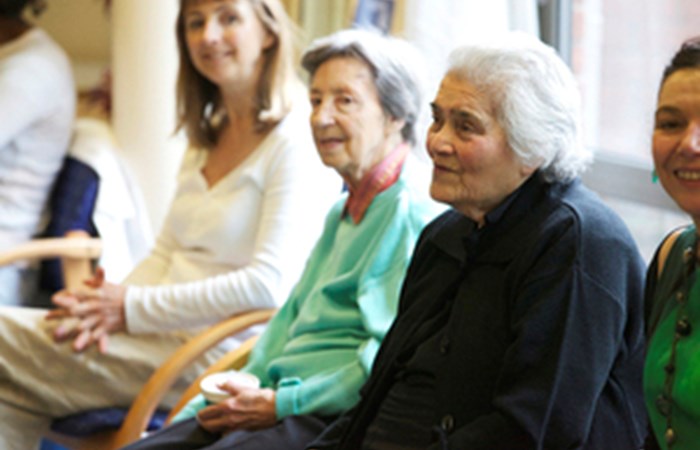Public Health England

Resources include 4 new Practice Resource papers and a series of written and video stories which encourage local action on health inequalities. They provide councils and local partners with evidence and examples of approaches that can be taken to reduce inequalities in their area.
The Practice Resource papers, commissioned by PHE and produced by Professor Sir Michael Marmots team at the UCL Institute of Health Equity, cover 4 topics:
- opportunities for using the Social Value Act to reduce health inequalities in England
- promoting good quality jobs to reduce health inequalities
- reducing social isolation across the life course
- improving health literacy to reduce health inequalities
Papers on Promoting good quality jobs and Using the Social Value Act demonstrate the opportunities available at local level to improve economic conditions, employment and standards of living: all significant determinants of health and wellbeing.
At the same time, PHE has published a series of written and visual stories, as part of ourNational Conversationon health inequalities, illustrating peoples lived experiences of health inequalities.
These present examples of initiatives and action that local areas can take to improve the social determinants that influence health. The examples cover 4 domains; housing, education, community and employment.
Professor Kevin Fenton, National Director for Health and Wellbeing at PHE said:
The social determinants of health inequalities are often deep rooted and complex. PHE recognises that to tackle the issue we need to open up discussion at both national and local level, and use local expertise.
Reducing health inequalities is at the heart of PHEs mission. These new resources build on papers published last year to support local action on health inequalities and demonstrate the opportunities available to local services to improve health throughout their communities.
Time Credits is an approach taken by Chorley Borough to reduce health inequalities locally.
Time Credits is an innovative system which can be introduced by councils to tackle inequality and improve health locally. Chorley Time Credits was brought in to the area to support vulnerable people in the community by offering them the chance to earn a Time Credit for every hour given to the community: for example, by volunteering at a local peer support group. Chorley time credits
With this Time Credit they can then access hundreds of new and healthy activities that they otherwise may not have access to, such as the gym, adult education and family days out. One Time Credit earned always equals an hour of activity.
A report published in July found 81% of participants feel Time Credits have had a positive impact on their quality of life, and 23% reported having less need to go to the doctor.
Councillor, Beverley Murray, who oversees volunteering and health and well-being in Chorley, said:
Time Credits have been a huge hit in Chorley and they are delivering some exceptional benefits for the individuals and organisations that are involved in the scheme. We are keen to continue developing and promoting the scheme to enable more people to get involved in their community and gain access to the many opportunities available across the Chorley borough.
Dr Jessica Allen, Deputy Director of the Institute of Health Equity said:
Every year 202,000 in the UK people die unnecessarily from avoidable health inequalities: thats 550 every day. We know improving conditions in which people are born, grow, live, work and age is the most effective way of reducing health inequalities.
The 2012 Social Value Act is an important piece of new legislation which places an onus on organisations spending public money to do so with an eye to improving social circumstances; spending it for the public good.
Good quality jobs, reducing social isolation and improving health literacy are 3 hugely important ways of taking action on the social determinants of health and these new reports from the Institute of Health Equity set out how and why to these take actions and provide examples of good practice nationally and locally.
Background
The documents are designed for people working in local service, particularly: Directors of Public Health and public health teams, people working in local authorities, services that may influence health and wellbeing, such as Planning, Health and Wellbeing Boards. They should inform local strategies and plans, and support joint working across public services to help reduce inequalities.
Examples included in the National Conversations written and video stories include:
-
Lancashire Time Credits (Just add Spice) (Lancashire, North West England)
-
Family Mosaic Health Begins at Home project (London, South East England)
-
Excelsior Academy (Newcastle Upon Tyne, North East England)
-
Wakefield District Housing (Wakefield, West Yorkshire)
-
YoUR Academy (Nottinghamshire, East Midlands)
-
The Bromford Deal (West Midlands)
-
Essex Reach Out Project (Citizens Advice Bureau) (Essex, South East England)
-
Liverpool Healthy Homes (North West England)
Public Health England exists to protect and improve the nations health and wellbeing, and reduce health inequalities. It does this through world-class science, knowledge and intelligence, advocacy, partnerships and the delivery of specialist public health services.
PHE is an operationally autonomous executive agency of the Department of Health. Follow us on Twitter and Facebook.
